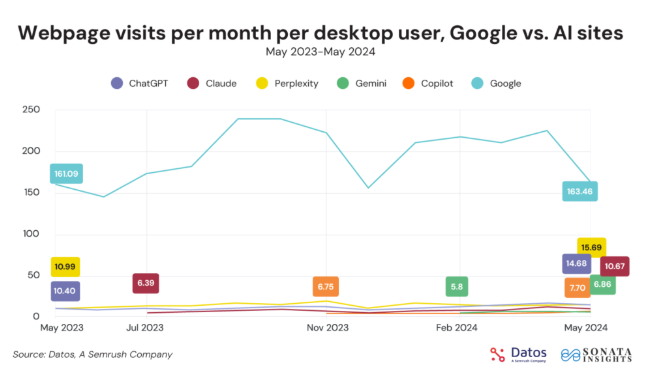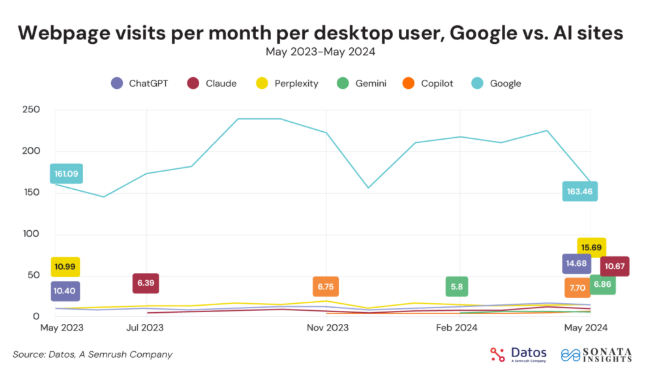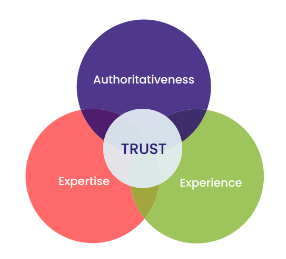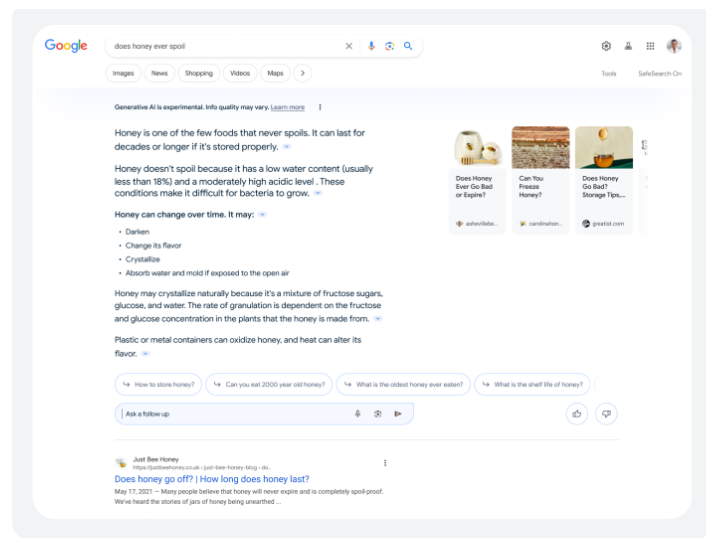Perception vs. Reality: Google, AI, and Search Habits

By Nick Nelson
Back in June of 2011, a social network by the name of Google+ officially launched. This newcomer to the nascent social media space was hailed as the next big thing, and early results seemed to validate the hype.
Headlines wondered: “Can Google+ be a Facebook killer?” The platform amassed 10 million users within two weeks of launching. It had plenty of things going for it: the vaunted Google brand name, full integration across the provider’s suite of products, and a slick set of features and functions.
Less than 15 years later, Google+ is gone and faded from memory. Just one of many “next big things” throughout history that never quite lived up to the lofty initial projections and prognostications. Which brings us to the topic of Google, AI, and user search habits.
The impact of generative AI on organic search: So far, minimal
There has been a lot of buzz about the rise of AI search tools and features, and their potential impact on organic search traffic. This may in fact be the No. 1 line of questioning we receive from clients and prospects these days: How should we adapt our SEO strategy in the age of AI search?
It’s true that more people are turning to generative AI platforms like ChatGPT, Copilot, and Perplexity to find information and answer questions. It’s also true that AI Overviews are changing the makeup of Search Engine Results Pages (SERPS) on Google, and often pushing top-ranked organic listings down.
However, the actual impact of these changes on search behaviors has — so far — been smaller than you might think.
A new whitepaper from Datos found that while Perplexity has emerged as the top LLM (large language model) search engine, experiencing 42% growth from May of 2023 to May of 2024, Google still had 290x the number of search users, and its market share remained consistent over the course of the year.
(Source: Consumer Search Behavior: What’s Changing and What’s Not in the Age of AI?)
The research highlighted two key insights:
- Traditional search users aren’t migrating to AI search en masse: The percentage of traditional search engine users who also use AI platforms grew only 2 points over the course of a year.
- AI search users are still turning to traditional search: 99% of AI platform users still used traditional search engines
People continue to predominantly leverage Google for search. But that doesn’t mean they are clicking through to organic results as frequently, or that these results are still being displayed the same way.
Rise of the zero-click search
While searchers are still using Google, they aren’t necessarily taking the same …read more
Source:: Top Rank Blog









